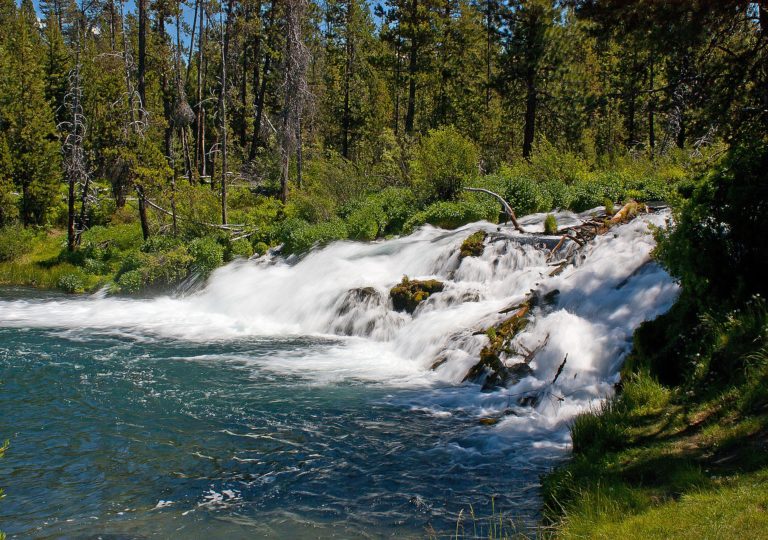
The Clean Water Act—celebrating its 45th anniversary this week—is one of the United States’ most influential environmental laws. Prior to this law, there was no uniform, effective way of preventing pollution from entering waterways throughout the country. Waterways were ravaged by the impacts of toxic waste, heavy metals and sewage released from manufacturing, industrial agriculture, energy production and more.
The creation of the Clean Water Act (CWA) in 1972 allowed waterways to be monitored and controlled so that unsafe levels of heavy metals, toxins, pathogens, carcinogens and radioactive materials don’t end up in waters utilized by the public. Implementation of the CWA by the states and EPA has not been perfect though, and many waterways across the country remain polluted. Recent reports from the states to EPA show that 100% of assessed Great Lakes Open Water, 71.3% of assessed lakes/reservoirs/ponds and 54.9% of assessed streams/rivers in the U.S. are unsafe for fishing, drinking, and/or swimming. Lake Erie, the Chesapeake Bay, the Gulf of Mexico, North Carolina’s coastal estuaries, Puget Sound and many other significant water resources across the country are severely polluted. In order to protect and restore these waters, it is essential that the Clean Water Act protections and limits on dangerous discharges remain in place and are enforced by EPA, the states and citizens.
Unfortunately, today the Trump administration and Congress are putting our health and clean water at risk by proposing rollbacks of existing protections and massive cuts to EPA’s budget. Much of the progress our 176 U.S. Waterkeeper Organizations and Affiliates have made using the CWA to clean up waterways is in danger of being reversed. We simply cannot stand by as this administration attempts to return the country to a time when burning rivers, massive fish kills and polluted water supplies were the norm—we need to move forward instead.
Congressional Attacks on the Clean Water Act
Congress is considering bills that would gut the Clean Water Act and the protections it provides. Two bills attempt to rein in an especially important aspect of the CWA—the ability of private citizens to take legal action against polluters when the government fails to do its job. Others seek to create loopholes for polluting industries, such as allowing pesticides to be released into waters. These bills are especially dangerous because they seek to change the bedrock on which most water protections throughout the nation are built—the CWA. If a provision of the CWA is weakened or eliminated by Congress, all protections created based on that provision will also be impacted, and it would take a new law, and likely many years, to reverse.
Rollbacks of Existing Protections
In February of this year, President Trump signed an executive order to begin a series of actions that will allow uncontrolled discharges of toxic and other pollution into our nation’s waters. At President Trump and Administrator Pruitt’s behest, EPA is aiming to slash the number of waterways protected under the law, leaving the majority of our waterways vulnerable to dangerous discharges of industrial waste and municipal sewage.
Eliminating CWA protections for waterbodies will endanger the public and will degrade and destroy our nation’s fisheries, water supplies, recreational waters and coastal waters. Permitting and regulating pollution discharges into upstream water bodies is essential to restoring our nation’s waters, which are still polluted 45 years after passage of the CWA. As a nation, we cannot have clean water unless we control pollution at its source—wherever that source may be.
Hamstringing the EPA
In the spring, the Trump administration revealed a proposed budget that would slash funding for EPA by a third—an unconscionable amount. Keeping our waterways clean and safe involves remediating polluted waterways and enforcing protective regulations to keep pollution from entering the water—both of which depend on a fully funded EPA. While the EPA budget cuts proposed to date by Congress are not nearly as reckless, they would still limit the ability of the EPA to fully enforce the CWA.
This week, with the 45th anniversary of the CWA on Wednesday, October 18, we ask you to contact your Members of Congress and urge them to support the Clean Water Act and the protections it creates.
“My name is [YOUR NAME] and I am a resident of ZIP code [ZIP CODE]. I am calling today to voice my opposition to any elimination or rollback of clean water protections. Clean water is essential to the health of your constituents and communities around the country. The Clean Water Act has led to incredible progress over the last 45 years, but we still have a lot of work to do, and cannot afford to move backwards. I ask you to please fight to preserve all Clean Water Act protections, including the ability for private citizens to sue when government fails to enforce the law. I also ask that you support a strong, well-funded Environmental Protection Agency that is able to create regulations free from industry interference, and oppose attempts roll back our environmental safeguards. Thank you.”
[CongressLookup]